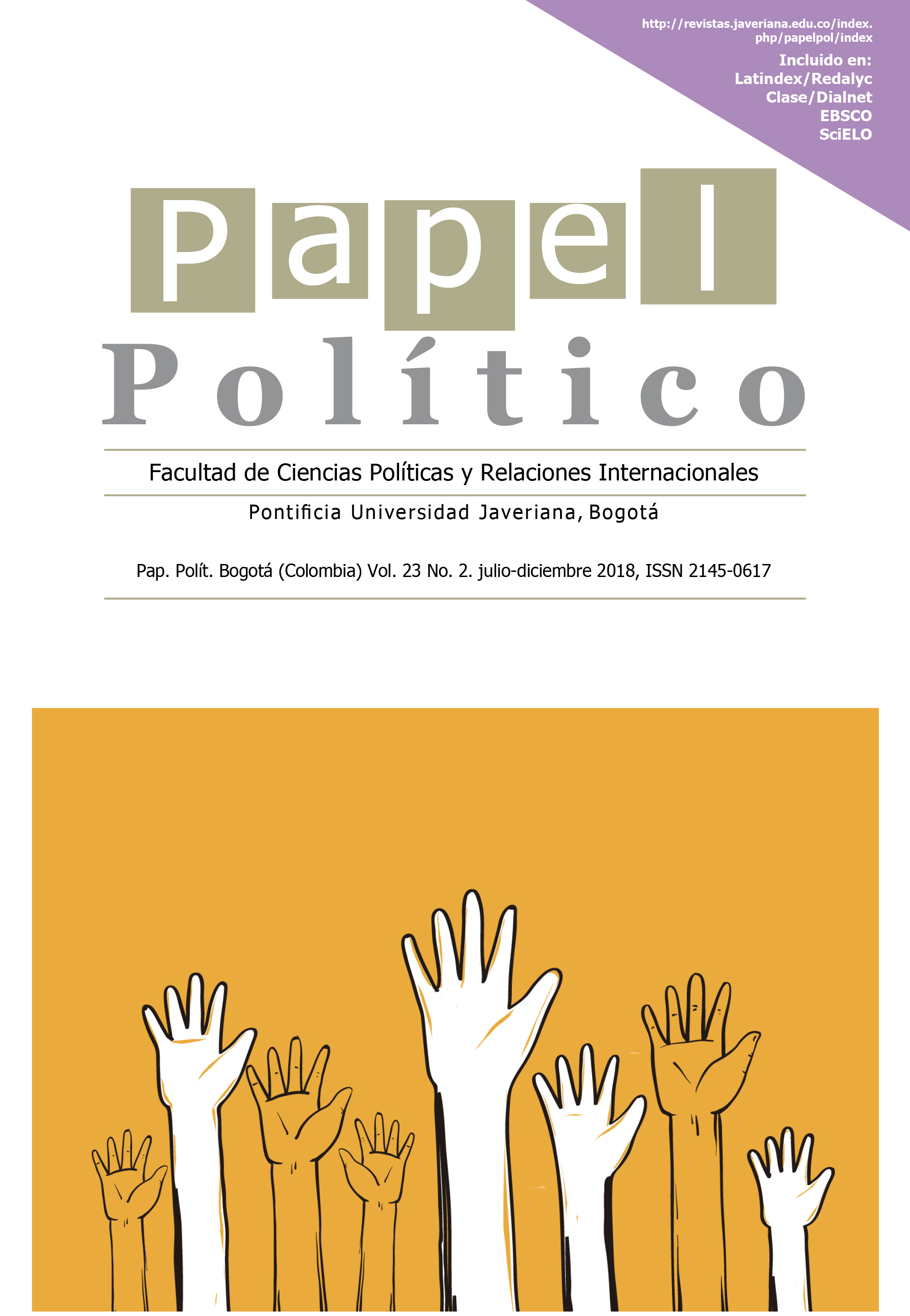Resumen
En el artículo identificamos aspectos de larga duración y otros coyunturales, que han acompañado la postura de Washington en la zona. En la primera parte, se estudian las primeras intervenciones ocurridas durante el siglo XVIII. Luego, se revisa la primera parte del siglo XX, hasta que el inicio de la Guerra Fría genera marcados cambios en los intereses de la élite política estadounidense hacia la zona. Se estudia, con especial interés, la reacción de Saddam Hussein ante el fin de la era bipolar y el inicio de la posguerra fría en la década de 1990. Finalmente, algunas conclusiones.
Ali, Mohamed, John Blacker, y Gareth Jones. "Annual Mortality Rates and Excess Deaths of Children under Five in Iraq, 1991-98". Population Studies 57, no. 2 (July 2003): 217-226.
Aranda, Gilberto, y Morandé. José. "Hegemonia Norteamericana en Medio Oriente. Algunas premisas". Revista de Estudios Árabes, no. 1 (2005): 9-30.
Badeau, John. The American Approach to the Arab World. New York: Harper and Row, 1968.
Baghdad Domestic Service. "Saddam´s Hussein Initiative". 12 de agosto de 1990.
Balmaceda, Leonardo, Pedro Brieger, y Carmen Sfrégola. "Estados Unidos y la contención dual." Ponencia presentada en III Jornadas de Medio Oriente. IRI (UNLP), La Plata, 2000.
Barbé, Esther. "Orden Internacional: ¿Uno o varios? Neoimperialismo, Caos y Posmodernidad". En Cursos de Derecho Internacional y Relaciones Internacionales de Vitoria-Gasteiz 2004, 155-190. Bilbao: Servicio Editorial de la Universidad del País Vasco, 2005.
Bosemberg, Luís E. "Estados Unidos y el Medio Oriente: moderación, rivalidad y hegemonía". Historia Crítica, no. 26 (2003): 9-23.
Claire, Rodger W. Raid on the Sun: Inside Israel’s Secret Campaign That Denied Saddam the Bomb. New York: Broadway Books, 2004.
Chomsky, Noam. "Los dilemas de la dominación". En Nueva Hegemonía Mundial, editado por Atilio Borón. 3-14. Buenos Aires CLACSO, 2004.
Drezner, D. W. "The New New World Order". Foreign Affairs 86, no. 2 (2007): 34-46.
Fukuyama, Francis. "The end of history?". The National Interest 16, no. 4 (1989): 3-18.
Gaddis, John Lewis. The Cold War: A New History. New York: Penguin Group, 2007.
Halliday, F. The Middle East in International Relations. New York: Cambridge University Press, 2005.
Herrmann, Richard K. "The Middle East and the New World Order: Rethinking U.S. Political Strategy after the Gulf War". International Security 16, no. 2 (1991): 42-75.
Ismael, Tareq. International Relations of the Contemporary Middle East. A Study in World Politics. New York: Syracuse University Press, 1986.
Khalidi, Rashid. La reafirmación del Imperio: Estados Unidos y la aventura occidental en Oriente Próximo. Madrid: Catarata, 2004.
Krauthammer, Charles. "The unipolar moment". Foreign Affairs 70, no. 1 (1990): 23-33.
Krauthammer, Charles. "The unipolar moment revisited". The National Interest, no. 70 (2002): 5-18.
Kupchan, Charles A. The Persian Gulf and the West: The Dilemmas of Security. Boston: Allen and Unwin, 1987.
Mearsheimer, John, y Stephen Walt. El Lobby d'Israel. Badalona: Ara, 2007.
Mueller, John, y Karl Mueller. "Sanctions of Mass Destruction". Foreign Affairs 78, no. 3 (1999): 43-53.
Nye, Joseph S. "What New World Order?". Foreign Affairs 71, no. 2 (1991): 83-96.
Raas, Whitney, y Austin Long. "Osirak Redux? Assessing Israeli Capabilities to Destroy Iranian Nuclear Facilities". International Security 31, no. 4 (2007): 7-33.
Slaughter, Anne Marie. "The Real New World Order". Foreign Affairs 76, no. 5 (1997): 183-197.
Vereté, Mayir. "The Balfour Declaration and its Makers". Middle Eastern Studies 6, no. 1 (1970): 48-76.
Walt, Stephen. The Origins of Alliances. New York: Cornell U.P., 1987.
Woods, Kevin, J. Lacey, y W. Murray. "El engaño de Hussein visto desde adentro". Foreign Affairs en español 6, no. 3 (2006): 19-45.
Esta revista científica se encuentra registrada bajo la licencia Creative Commons Reconocimiento 4.0 Internacional. Por lo tanto, esta obra se puede reproducir, distribuir y comunicar públicamente en formato digital, siempre que se reconozca el nombre de los autores y a la Pontificia Universidad Javeriana. Se permite citar, adaptar, transformar, autoarchivar, republicar y crear a partir del material, para cualquier finalidad (incluso comercial), siempre que se reconozca adecuadamente la autoría, se proporcione un enlace a la obra original y se indique si se han realizado cambios. La Pontificia Universidad Javeriana no retiene los derechos sobre las obras publicadas y los contenidos son responsabilidad exclusiva de los autores, quienes conservan sus derechos morales, intelectuales, de privacidad y publicidad.
El aval sobre la intervención de la obra (revisión, corrección de estilo, traducción, diagramación) y su posterior divulgación se otorga mediante una licencia de uso y no a través de una cesión de derechos, lo que representa que la revista y la Pontificia Universidad Javeriana se eximen de cualquier responsabilidad que se pueda derivar de una mala práctica ética por parte de los autores. En consecuencia de la protección brindada por la licencia de uso, la revista no se encuentra en la obligación de publicar retractaciones o modificar la información ya publicada, a no ser que la errata surja del proceso de gestión editorial. La publicación de contenidos en esta revista no representa regalías para los contribuyentes.



